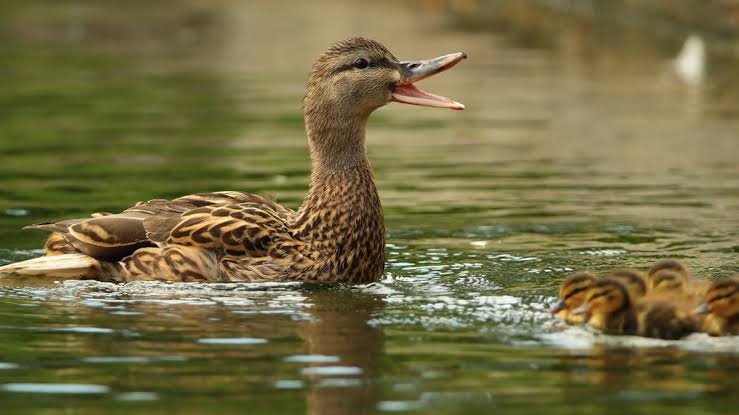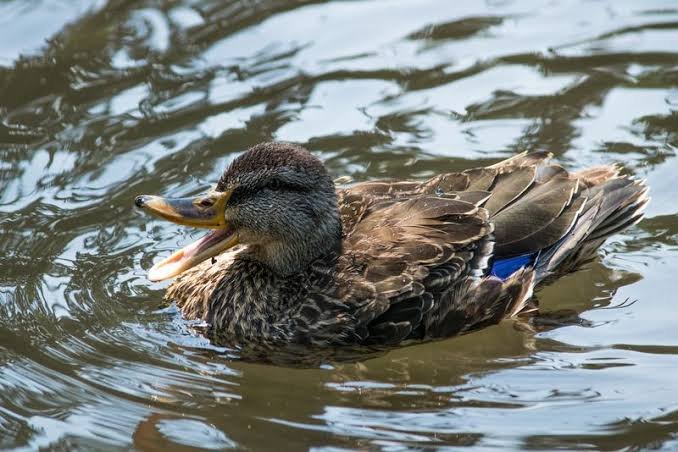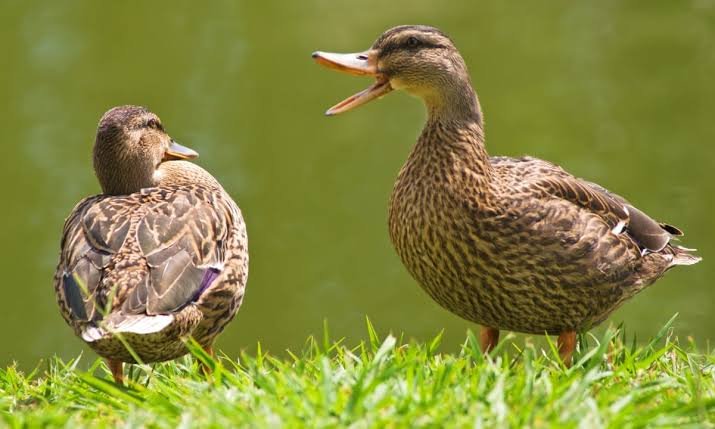Have you ever wondered if duck quacks echo? This age-old question has sparked curiosity and debate among nature enthusiasts and science buffs alike. Join us as we delve into the fascinating world of sound, echoes, and our feathered friends to uncover the truth behind this intriguing myth. Get ready to quack your way through a journey of discovery!
The science behind sound and echo

Have you ever wondered about the fascinating science behind sound and echo? Sound is created when something vibrates, causing waves of pressure to travel through the air. These waves eventually reach our ears, allowing us to perceive sound. Echoes occur when sound waves bounce off a surface and return to our ears.
The speed of sound in air is approximately 343 meters per second, but it can vary depending on factors like temperature and humidity. When a sound wave meets a reflective surface like a wall or cliff, it bounces back towards its source, creating an echo effect. The distance between the source of the sound and the reflecting surface determines how long it takes for the echo to return.
Understanding these principles helps debunk myths surrounding echoes, including whether duck quacks can echo. By delving into the science behind sound propagation, we gain valuable insights into how echoes are produced in different environments.
Studies on duck quacks and echoes

Have you ever wondered if duck quacks really echo? Well, researchers have delved into this intriguing question to uncover the truth behind these aquatic bird sounds. Through scientific studies and experiments, experts have sought to understand the acoustics of duck vocalizations and their potential for echoing in various environments.
One study conducted by acoustics experts involved recording and analyzing duck quacks in different settings to determine if echoes were present. By examining the sound waves and reverberations, researchers aimed to shed light on whether ducks’ distinctive calls could bounce back off surfaces like walls or water bodies.
The findings from these studies provided valuable insights into the nature of duck vocalizations and their interaction with surrounding elements. While some myths may persist about duck quacks echoing, science offers a more nuanced perspective on the acoustic properties of these avian sounds.
So next time you hear a duck quack resound across a pond or park, remember that there’s more than meets the ear when it comes to these fascinating feathered creatures’ vocalizations.
Debunking common misconceptions

Let’s address some common misconceptions about duck quacks and echoes. Many people believe that duck quacks do not echo due to their unique vocal structure. However, this is simply a myth without scientific backing.
The truth is that all sound waves, including those produced by duck quacks, have the potential to echo in the right environment. The misconception likely stems from the fact that ducks often quack near water bodies where sound can be absorbed or distorted.
It’s important to remember that ducks produce sounds at various frequencies just like other animals. These frequencies can indeed bounce off surfaces and create echoes if conditions are suitable for reflection.
So next time you hear a duck quacking away, pay attention to your surroundings – you might just catch an echo bouncing back!
Other interesting facts about duck sounds
Ducks are not only known for their quacks, but they also produce a variety of other sounds to communicate. From soft coos to loud honks, each sound serves a different purpose in the duck world. These vocalizations play a crucial role in establishing territory, attracting mates, and warning others of potential dangers.
Interestingly, ducks can even make whistles and growls! These unique sounds add depth to their communication repertoire and help them navigate their environment effectively. Some species of ducks are more vocal than others, showcasing the diversity in their vocal expressions.
One fascinating fact is that ducklings start communicating with their mother before they even hatch! Inside the egg, they emit soft peeping sounds that help them bond with their mother and siblings. This early form of communication sets the stage for future interactions within the duck family.
Duck sounds are not just random noises – they are intricate forms of communication that play a vital role in the social dynamics of these feathered creatures.
Real-life experiments and observations
Have you ever wondered about the real-life sound of a duck quack echoing? Well, researchers have conducted various experiments and observations to uncover the truth behind this age-old myth. In one study, scientists brought ducks into an acoustically controlled room to analyze the sounds they produced.
Interestingly, it was found that duck quacks do indeed produce echoes under certain conditions. The sound waves bounce off surfaces and return to the source with a delay, creating an echo effect. However, the echo produced by a duck’s quack may not be as pronounced or noticeable as other louder sounds due to its relatively low frequency.
In another real-life experiment, researchers recorded duck calls in different environments to study how their quacks interacted with surrounding structures. They discovered that factors like distance, surface materials, and background noise can all influence the presence of an echo.
These real-life experiments and observations shed light on the acoustic properties of duck sounds and debunk any myths suggesting that their quacks don’t echo.
Conclusion: the truth about duck quacks and echoes
So, after exploring the fascinating world of duck quacks and echoes, it’s clear that there is more to these sounds than meets the eye. Through scientific studies and real-life experiments, we’ve debunked the myth surrounding whether duck quacks echo.
Ducks are indeed capable of producing sounds that can echo in certain environments, just like any other sound-producing entity. The acoustics of the surroundings play a crucial role in determining whether the quacks will bounce back or not.
Next time you find yourself near a body of water with ducks swimming around, take a moment to listen carefully. You might be surprised by how their quacks interact with the environment around them.
Remember, nature always has its way of surprising us with its wonders and mysteries. Stay curious and open-minded when exploring the world of animal sounds – who knows what other secrets await discovery!
FAQ’s
Q: Can all ducks quacks echo?
Yes, the sound of a duck quack can indeed produce an echo under the right conditions. However, it may not be as prominent or noticeable as other louder sounds due to the characteristics of their quacks.
Q: What makes a duck’s quack unique for echoing?
The structure and frequency of a duck’s quack contribute to its ability to create an echo. The pitch and volume of the sound play a crucial role in determining whether it will reflect off surfaces.
Q: Do all waterfowl have echoes in their vocalizations?
Not all waterfowl species have vocalizations that can produce echoes. Ducks are known for their distinct quacking sounds that have been studied extensively in relation to echoes.
Q: Are there any other animals whose vocalizations can create echoes?
While ducks are among the few animals with vocalizations capable of producing discernible echoes, certain bird species like parrots and owls also exhibit this phenomenon due to specific adaptations in their anatomy.


